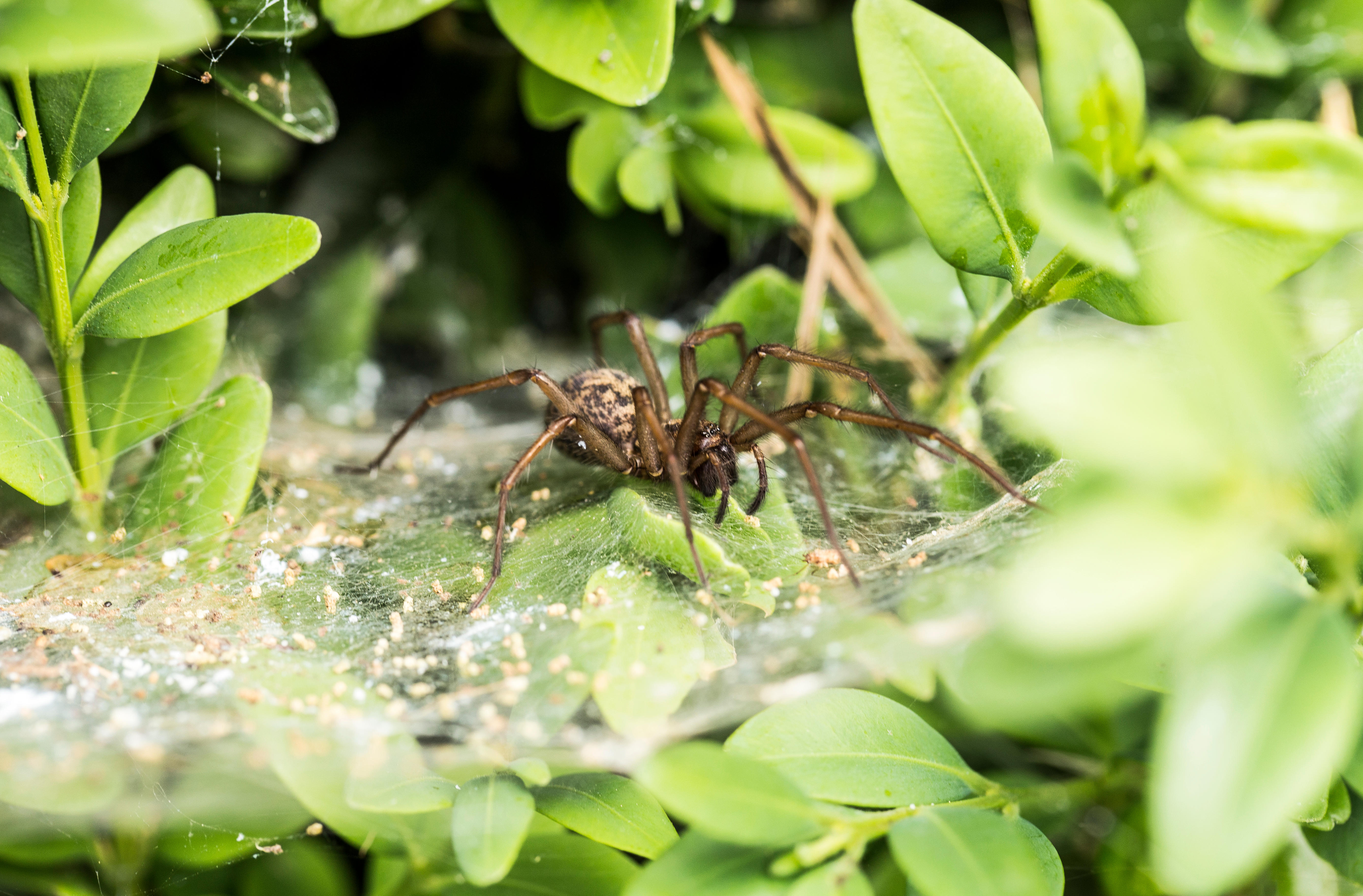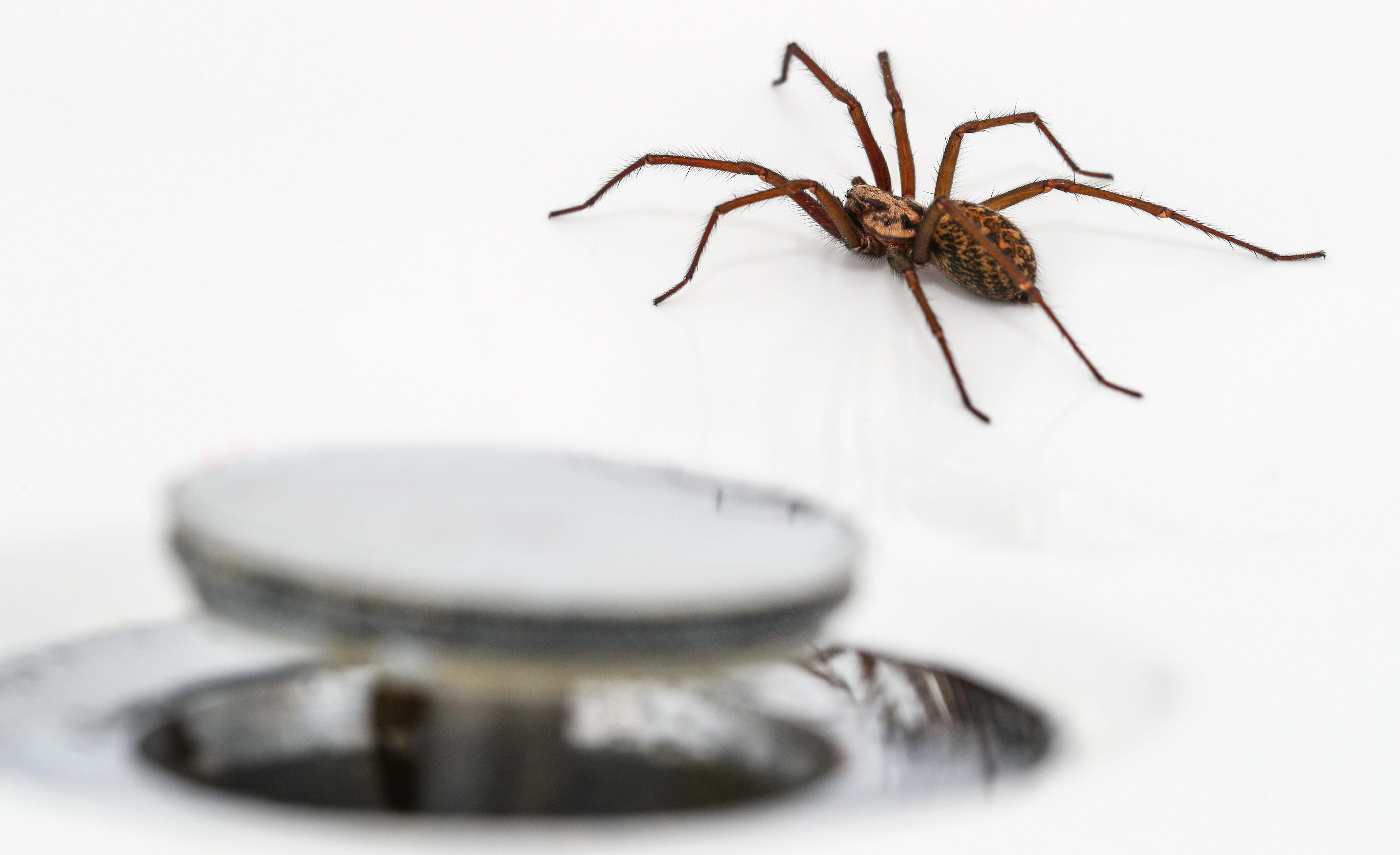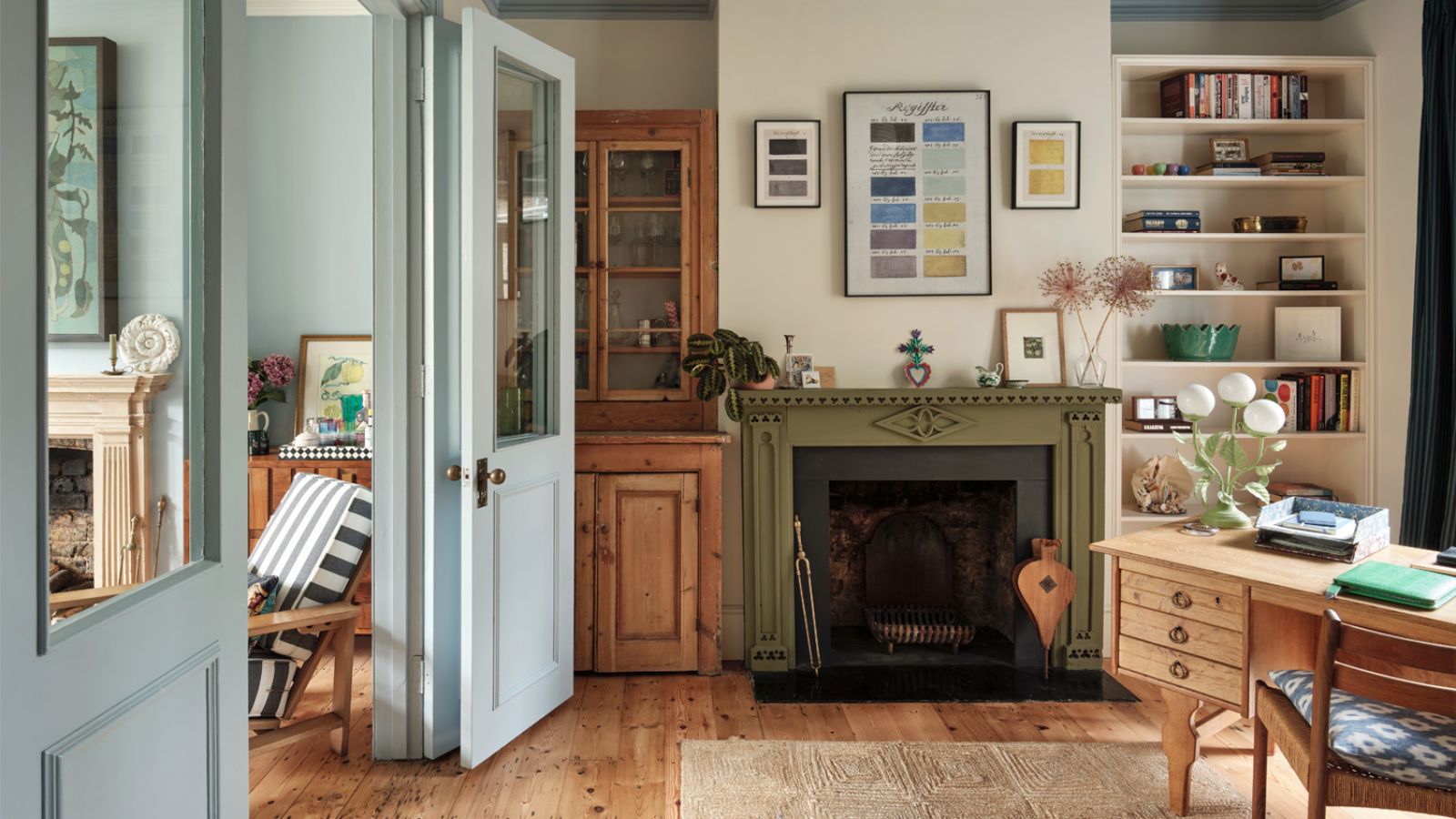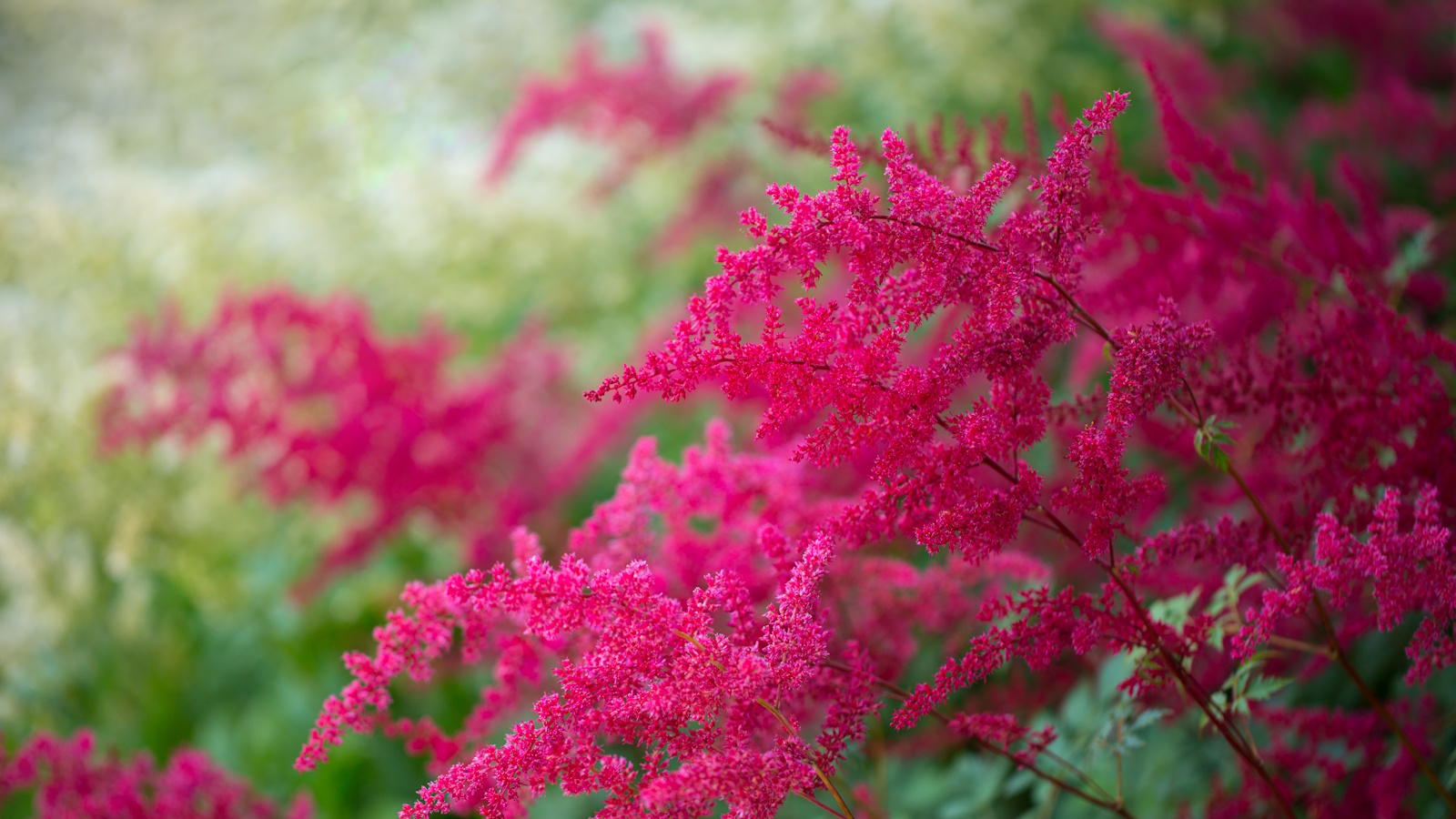13 ways to keep spiders away – naturally and without killing them
Want to keep spiders out of the house? Don’t want to share your rooms with eight-legged critters? These are the top methods to keep spiders away


There are so many natural ways to keep spiders away without killing them. Because while we know they do good, spiders inside the home are not a welcome prospect for most of us. Out in the yard, they’re beneficial, so it’s great to have them in your flower beds, but while they can provide pest control inside the house and are mostly harmless, we’d still rather not share.
But how to put them off taking up residence in your interiors? We asked the H&G team to share their tried-and-tested, favorite, and failsafe ways to keep spiders away.
13 ways to keep spiders away

Think prevention in the first place, then removal of the spiders that have made it inside to avoid unwanted residents. Just like getting rid of fruit flies, some of these tips are more about prevention than cure. This is how to keep spiders away.
1. Remove cobwebs
If spiders are constantly building webs in your home – or around your exterior doors or on the porch – it's because they find it a good environment: safe, dry and with a steady supply of food.
So, if you regularly disrupt the webs with some simple housekeeping, you will find that the spiders will move on. They may not go far, perhaps they'll find a place to live in your shed, but you won't be sharing your home with them, which should make you happier.
2. Keep spiders away with vinegar
Cleaning with vinegar has many benefits, but did you know it could be used to keep spiders out of the house? Spiders, like many insects, hate strong scents, and vinegar certainly has a strong odor.
'I love to make homemade bug sprays,' says Rachel Crow, Homes & Gardens' Gardens Editor. 'Simply mix equal parts vinegar and water in a spray bottle and spray in the areas that spiders frequent (avoiding spraying on walls which will stain or on flowers and plants, which will be damaged). The smell will dissipate fairly quickly for human noses, but spiders will still pick it up and be repelled.'
3. Grow plants spiders hate
Above and below, we have listed some scents that spiders hate that you can spray around the house. However, you can make life even easier by growing spider-repellent plants, such as eucalyptus, lavender, mint and citronella. Dot these in fall planters (when spiders start to seek shelter indoors more noticeably), or plant them in borders that surround the house. It should encourage spiders to keep away.
4. Fill gaps and cracks to keep spiders out
Any gaps and cracks around doors and windows give spiders an easy route into your home, so fill these using caulk or weather stripping.
‘I make an inspection of the outside of my home at the end of every summer,’ says Jennifer Ebert, digital editor. ‘I know that as soon as temperatures drop in fall, I’m more likely to find spiders inside, so this is a way of minimizing their opportunities.’
5. Turn off lights at night
Outdoor lighting ideas are of course wonderful for security and to show off your home at night, but did you know that spiders are attracted to light too? The lights bring insects, and the insects bring the spiders that prey on them.
‘I make a habit of keeping outside lights off as much as possible,’ says Lucy Searle, Global Editor in Chief. ‘Fewer bugs has definitely cut the number of spiders I’ve seen inside, and while I love looking out at the yard at night, I'm aware that it's not energy-efficient to do so, so it's a win-win.’
6. Keep up with pruning
While it’s great to have a wildlife garden including spiders, don’t encourage them to make their home right beside your house. That means avoiding locating bushes and other vegetation by the walls and growing plants up them.
‘Spiders are an asset in the backyard, so do allow them to thrive while taking measures to keep them out of the house,’ says Teresa Conway, gardening writer. ‘Piles of logs, twigs, leaves and so on away from the house will provide them with the situations they favor in the yard.’
7. Clean regularly
Spiders are, of course, not the only reason why you should clean regularly, but keeping them away is one of the reasons to do so. Dust and vacuum, getting into corners and crevices, and tidy and declutter and they are less likely to find an undisturbed spot in which to take up residence.
‘Don’t neglect the basement and garage when it comes to periodic cleaning and decluttering if you want to keep spiders out of the house,’ cautions executive editor Kaitlin Madden.
8. Focus on houseplants
Spiders don’t live on indoor plants, but they might hide there, so take a look – and take any outside.
Be aware, too, that you might want to get rid of spider mites. These are also arachnids and also have eight legs – and could be eating indoor greenery.
‘There are miticides for controlling spider mites, but most are not for indoor use,’ says Marisa Y Thompson, PhD, extension horticulture specialist in the department of extension plant sciences at the New Mexico State University Los Lunas Agricultural Science Center. ‘It is easier to just put the houseplant in the bathtub or shower and spray with a strong, but fine mist of water.’
9. Repel them with citrus
Love cleaning with lemons? It’s said you can put spiders off the natural way with a citrus-containing spray. To create your own, mix around 20 drops of lemon or an alternative with water and spray on windowsills or in corners.
‘I have tried this,’ says Digital Editor Jennifer Ebert. ‘It wasn’t a scientific experiment, but I think it made for fewer spider sightings last fall, and it definitely smelled good.’
Recommended alternatives are sprays made up in the same way using essential oils such as cinnamon, peppermint, lavender or tea tree.
10. Store securely
That box of holiday decorations could be providing spiders with a home in your home. ‘Store seldom-used items like this in boxes with secure lids,’ says Deputy Editor Jo Bailey. ‘This way you won’t be providing spiders with an undisturbed hiding place. It will keep your ornaments in top condition, too.’
11. Move the woodpile
Yes, keeping firewood stacked by your house is convenient, but it’s also convenient for spiders and from there it’s not far to the inside of your home.
‘I can say we’ve seen fewer spiders inside since we moved our woodpile to a different location further away from the house,’ says Melanie Griffiths, Period Living editor.
12. Show them the door (part 1)
Like any uninvited guest, once spiders have found their way inside, it’s important to make it clear that they shouldn’t think of setting up home. The easiest way to do this is to take them outside using a glass and a piece of cardboard.
Invert the glass over the critter, slide the cardboard underneath and trap it, then walk it to the end of the yard for release.
‘Be safety conscious,’ says gardens editor Rachel Crow. ‘There are venomous spider species in the US, including the black widow and the brown recluse. They are more likely to be encountered outside but take a look on the CDC site so you know what they look like, and check UC Riverside’s map to see the range of the brown recluse.’
13. Show them the door (part 2)
If picking up a spider in a glass is a little too much close contact for you, try a bug grabber instead. We like the My Critter catcher from Amazon, which allows you to stay at a comfortable distance from the intruder.
‘Arachnophobe who nevertheless doesn’t want to harm spiders?’ says shopping editor Annie Collyer. ‘A bug grabber will rid your of your problem without weighing on your conscience.’
What is the best repellent for spiders?
Strong essential oil aromas such as peppermint or eucalyptus are great spider repellents, as is the smell of vinegar.
What smells keep spiders away?
A host of smells are reputed to keep spiders away. They include citrus, mint, lemongrass and eucalyptus. But be aware that spider experts aren’t convinced. Our opinion? Since these will all make your house smell good, it’s worth giving them a try.
Can you spider proof a house?
You can make a house more spider proof, although be aware that a spider can fit through the tiniest of gaps. To cut down their opportunities to come insider use caulk around windows and door edges and door sweeps to outside doors. Fix damaged window and door screens, too.
Grow trees and shrubs away from the outside walls of your home, and don’t stack firewood or flowerpots beside it either.
Sign up to the Homes & Gardens newsletter
Design expertise in your inbox – from inspiring decorating ideas and beautiful celebrity homes to practical gardening advice and shopping round-ups.

Sarah is a freelance journalist and editor. Previously executive editor of Ideal Home, she’s specialized in interiors, property and gardens for over 20 years, and covers interior design, house design, gardens, and cleaning and organizing a home for Homes & Gardens. She’s written for websites, including Houzz, Channel 4’s flagship website, 4Homes, and Future’s T3; national newspapers, including The Guardian; and magazines including Future’s Country Homes & Interiors, Homebuilding & Renovating, Period Living, and Style at Home, as well as House Beautiful, Good Homes, Grand Designs, Homes & Antiques, LandLove and The English Home among others. It’s no big surprise that she likes to put what she writes about into practice, and is a serial house renovator.
-
 5 surprising but brilliant ways to clean with old socks – from perfectly buffing stainless steel to deterring pests naturally and more
5 surprising but brilliant ways to clean with old socks – from perfectly buffing stainless steel to deterring pests naturally and moreTackle dust in tricky corners, clean your mirrors and even banish bad odors with those rogue single socks
By Andy van Terheyden Published
-
 How to grow astilbe – expert advice on cultivating this shade-tolerant flowering perennial
How to grow astilbe – expert advice on cultivating this shade-tolerant flowering perennialShade-tolerant and pest-resistant - astilbe are hardy and tough perennials that can thrive in many settings
By Ellen Wells Published
-
 7 dorm room organizing rules for less clutter and more space
7 dorm room organizing rules for less clutter and more spaceExperts offer their top tips for creating a well-organized dorm room, no matter the size, space, or layout.
By Ashley Chalmers Published
-
 How to maximize storage in a small or shared dorm room, according to pro organizers
How to maximize storage in a small or shared dorm room, according to pro organizersFind out all the hidden storage zones you might never have noticed
By Ashley Chalmers Published